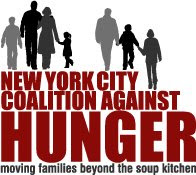
The city-wide trans fat ban and rule requiring fast food restaurants to post calorie information on menus have officially gone into effect
- sort of. Chain restaurants, including McDonald's and Burger King, are resisting the calorie policy and seem to be waiting for a federal lawsuit to throw out the rule - the City also does not plan to issue any fines for violations until October 1.
The trans fat ban has created some
controversy in the food industry as restaurants fear altered food and higher prices due to making the switch to more expensive, healthier oils. However, many restaurants have already been using healthy oils, like canola and peanut oils, and others are not finding any drastic differences in food quality with the switch. According to the Wall Street Journal, emergency food programs are also affected by the trans fat ban as Joel Berg, executive director of the New York City Coalition Against Hunger, says, "Logistics are an issue for other food servers. Volunteers at soup kitchens and food pantries are now supposed to examine labels on food products and separate which can be served where. That's because the ban covers food served in soup kitchens, but not packaged foods handed out by food pantries." Most facilities are "run by unpaid volunteers. They have enough trouble keeping track of inventories" says Mr. Berg, who adds that he nevertheless favors the law."








